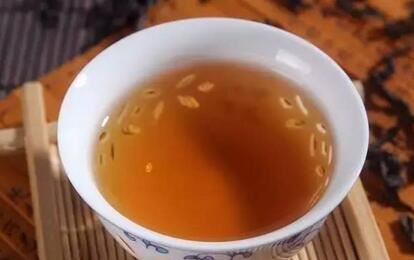I recently came across this online complaint:
A flight from Hong Kong to Beijing was unable to land at its destination for a while. Guess why? The smog was so thick you couldn't see a thing!!!
Autumn and winter seasons
are naturally high-risk periods for respiratory illnesses,
and the added assault of smog
puts immense pressure on the lungs.
Be kinder to your “lungs”
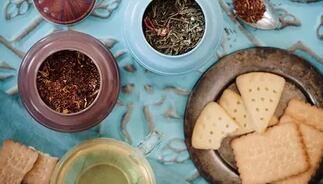
Five Lung-Cleansing Herbal Teas
To clear out the dirt in your lungs
Dry Throat and Cough — Loquat Fruit Tea
People who talk a lot or have chronic pharyngitis often experience a dry throat and cough. Drinking water boiled with loquat fruit can help clear the lungs, stop coughing, protect the vocal cords, and relieve a sore throat.
It's important to note that loquat fruit is cold in nature, and those with poor gastrointestinal health should not take it for prolonged periods.
Preparation:
1. Take 5-8 grams of loquat fruit.
2. Remove the shell, break it into pieces, and steep it in boiling water before drinking it cooled down.
3. This has the effect of clearing heat and detoxifying, relieving phlegm and cough, and nourishing the voice and lungs.
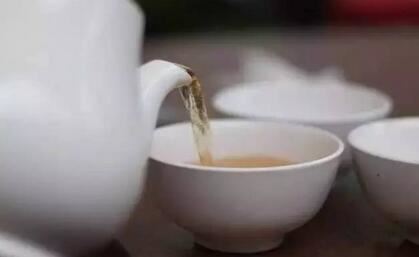
Dry Mouth and Sore Throat — Stonecrop Herb Decoction
Stonecrop herb has the properties of nourishing yin and clearing heat, protecting the lungs, and can be used to treat chronic pharyngitis. If you often feel a dry mouth and throat pain, you can use stonecrop herb to make tea to alleviate symptoms.
It's important to note that people with heavy phlegm-dampness (thick, greasy tongue coating), and those with spleen-stomach deficiency and cold (diarrhea) should take this under a doctor's guidance.
Preparation:
1. Steep 10 grams of stonecrop herb in tea.
2. For better efficacy, those with the means are recommended to boil the herb and drink the resulting decoction.

Itchy Throat — Honeysuckle and Platycodon Root Tea
During dry weather, many people may experience a dry mouth, tongue, and itchy throat. You can drink honeysuckle and platycodon root tea, which has the effects of clearing heat, generating body fluids, moistening the lungs, and soothing the throat.
It's important to note that those with poor spleen and stomach health should not drink too much of this.
Preparation:
1. Use 5 grams of honeysuckle, 5 grams of Ophiopogon japonicus, 3 grams of platycodon root, 2-3 grams each of raw licorice, fat sea date, and Tibetan green fruit.
2. Pour boiling water over the ingredients and drink as a tea.
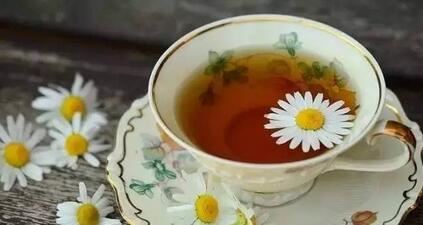
Cold with Wind-Cold Syndrome — Ginger and Jujube tea
Symptoms such as nasal congestion, sneezing, clear runny nose, itchy throat, cough, thin white phlegm, feeling cold, no sweating, headache, etc., may indicate wind-cold syndrome. If the symptoms are mild, you can drink ginger and jujube tea to prevent worsening symptoms.
It's important to note that this formula is suitable for mild cases of wind-cold syndrome. If self-medication does not improve symptoms within three days, or if accompanied by fatigue, chest pain, etc., seek medical attention promptly.
Preparation:
1. Use 10 grams of ginger and 5 grams of jujubes.
2. Boil in water and serve.
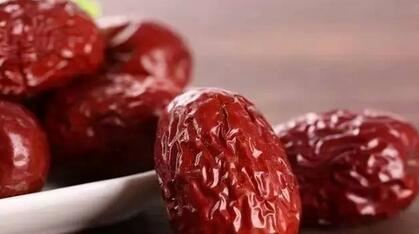
Cold with Wind-Heat Syndrome — Mint and Licorice Tea
If you experience symptoms such as a swollen and painful throat, dry mouth, thick and viscous nasal discharge, yellow and thick phlegm, headache, and cough, it might be a case of wind-heat syndrome. A method of dispelling wind-heat, clearing the lungs, and expelling pathogenic factors can be taken.
It's important to note that this formula is suitable for mild cases of wind-heat syndrome. If self-medication does not improve symptoms within three days, or if accompanied by fatigue, chest pain, etc., seek medical attention promptly.
Preparation:
1. Use 3 grams of Trolanda chinensis, 3 grams of mint, and 3 grams of raw licorice.
2. Drink as a tea.
